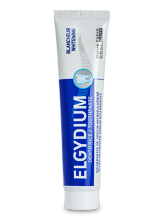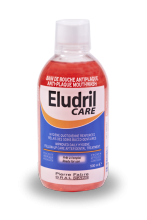Minor mouth injuries
Mouth irritation and injuries: How are they caused?
In our everyday lives, all of us have experienced minor injuries or irritation on the inside of the cheeks, lips or gums. These have various causes. For example:
- A slip when brushing your teeth, when the brush hits the gums.
- Brushing the teeth too aggressively.
- Abrasive or sharp foods, for example, a sharp bread crust.
- Biting the inside of a cheek, when chewing gum, for example.
- A burn from a hot drink or food.
- A fractured tooth with a sharp edge.
- Braces with a bracket or wire that irritates the oral mucosa
- Poorly adjusted removable dentures.
In addition to these injuries, the oral mucosa can also become irritated by poor oral hygiene (with a build-up of dental plaque) or hormonal factors (pregnancy, menstruation or adverse effects of a contraceptive pill). While tiredness and smoking can also contribute to factors and irritate the mouth.
Lastly, some diseases or their treatments can further cause irritation to the inside of the mouth: ulcers, fungal infections (oral thrush), herpes virus infection, chemotherapy cancer treatment, etc.
How can irritation and minor injuries to the mouth be prevented?
Preventing injuries and irritation on the inside of the mouth is often simple common sense:
- Brush your teeth gently to avoid slips, using a soft toothbrush with bristles that have rounded tips.
- Wait for piping-hot food and scalding drinks to cool before taking bite or sip.
- Consult your dentist without delay if the injuries are due to a broken tooth, braces or removable dentures.
Optimal oral hygiene (brushing, dental floss or an interdental brush and an antiseptic mouthwash) also helps keep mouth irritation at bay. A healthy lifestyle (eating a balanced diet, getting enough sleep and not smoking) is also advisable.
How can irritation and minor injuries to the mouth be relieved?
The first step in treating irritation and minor injuries to the mouth requires eliminating their causes.
There are also solutions that soothe and reduce discomfort while encouraging healing:
- Use a soothing gel, and apply directly to the mucous membrane. We recommend PANSORAL REPAIR gel.
- Use an antiseptic and analgesic mouthwash to prevent the proliferation of bacteria and to soothe the pain;
- Use an ultra-soft toothbrush (such as those prescribed after mouth surgery) and a gel toothpaste (which is less abrasive than pastes);
- Temporarily choose a gentle diet, avoiding abrasive, dry, very salty or spicy food;
- Keep your mouth moist by drinking enough fluids to avoid dehydration;
- After you have made an appointment with the dentist, there are waxes or silicone dressings available from pharmacies that you can apply in the meantime to braces or prosthetics that are causing injury.

